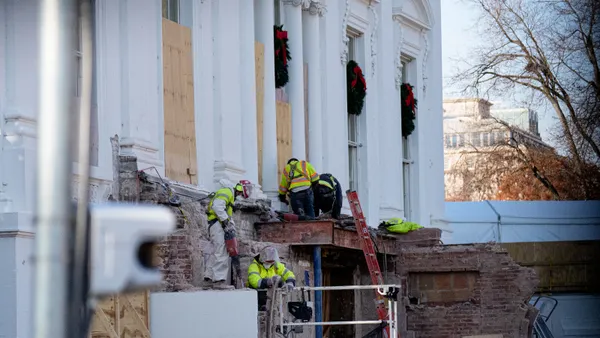Dive Brief:
- A California ballot measure slated for November, the No Blank Check Initiative, would give voters the last word on whether to fund projects worth more than $2 billion — like the California High Speed Rail Authority's bullet train — with revenue bonds, the Silicon Valley Business Journal reported.
- Spurred by the state's debt of $318 billion, California farmer Dean Cartopassi personally funded the successful petition to put the initiative on the ballot.
- If approved in November, the measure would allow voters to stop additional funding to the California High Speed Rail Authority, as well as to other large, public works projects typically funded through revenue bonds.
Dive Insight
Revenue bonds typically fund projects that, upon completion, provide a stream of revenue — through tickets sales, tolls, fares — as a way to repay the bond. In the case of the bullet train, the state has already devoted nearly $10 billion in voter-approved general obligation bonds, but the public could decide not to provide additional funding in the wake of the rail's delays and cost overruns.
Just last month, authority officials announced that they had issued almost $64 million in change orders to major contractor Tutor Perini for the cost of delays and to speed up construction in an effort to make up for lost time. Tutor Perini was originally set to begin construction on the first segment of the rail in 2013 and said it mobilized equipment and manpower to do so, but was delayed by the authority's failure to secure the necessary land.
This is just the latest bump in the authority's road to making progress on its plans for a bullet train from Southern California to Northern California. Since the project began, and since voters approved the multibillion general obligation bond funding, the train's estimated cost has risen from approximately $33 billion to $64 billion. In addition, officials have postponed the southern segment that requires tunneling through the mountain range north of Los Angeles in favor of a northern segment, which has already been changed to placate residents of Merced, who protested being left out of plans for the initial route.
All of these missteps and changes were outlined in a series of Los Angeles Times investigative reports, which sparked concern among legislators and led to special investigative hearings into the rail project.













